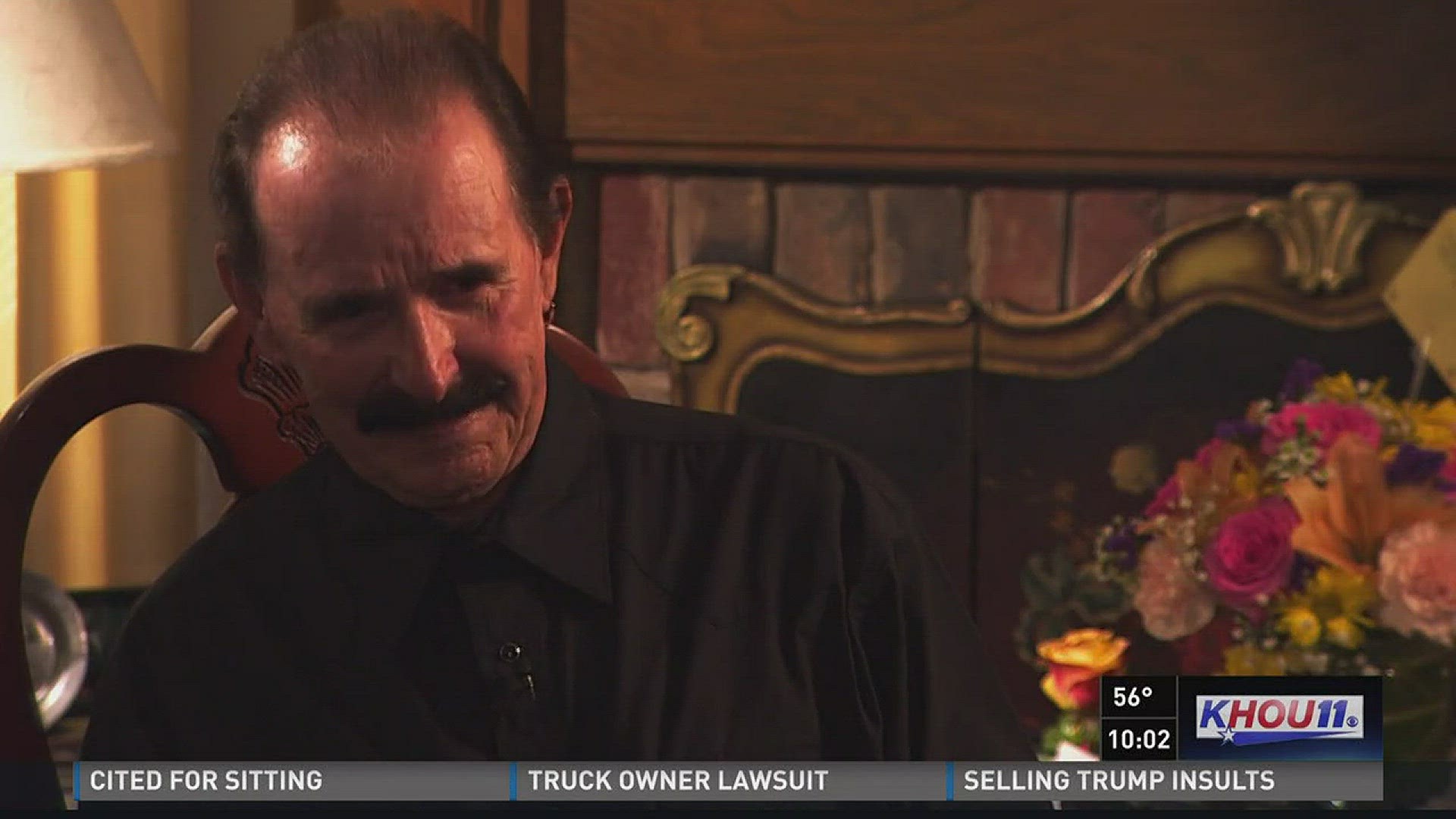Red rose petals scatted the overturned dirt. Beneath the shade of a crepe myrtle, the cowboy crooned a sad love song.
Sweeter than ever now. Boy, I remember how.
They’re the words of a heartbroken husband, lyrics that now carry a deeper meaning.
Months after KHOU 11 Investigates exposed a broken 911 system in the weeks after Hurricane Harvey, there’s new insight into just how bad the situation was. The sheriff’s office says all emergency calls should be answered within 10 seconds, but department records show on some days, those calls went unanswered for several minutes.
His was a love affair cut short, by what Gene Bowman says didn’t happen the day his wife, Janet, needed help.
“Accidents happen,” he said, “but to get brought down like that…”
His voice trailed off. She was the love of his life. They met on the wood floors of a country dance hall. He twirled her around and she captured his heart.
They went through the tragedy and triumph that come with years of marriage. They loved to travel but loved each other more than anything.
Then came Sept. 9. It was two weeks after Hurricane Harvey flooded Houston and forced Harris County’s 911 center out of its downtown home and into temporary quarters. The move triggered big problems for the 911 system and thousands of callers needing help.
Jason Spencer is the spokesman for the Harris County Sheriff’s Office. He said the thousands of calls became a “capacity issue.”
“We know that we had thousands of calls over that time period that were not answered in our target of less than 10 seconds,” Spencer said.
But what Bowman didn’t know is the day Janet stopped breathing, the average time it took 911 callers to get someone on the phone was nowhere near that goal of 10 seconds or less.
According to sheriff’s department records, the average wait time on Sept. 9 was 5 minutes and 13 seconds.
Bowman’s wait? Even longer.
“I’m trying to wait for somebody,” Bowman said. “And the message comes on and says, ‘We’re experiencing a high call volume. Please stay on the line. Do not hang up.’”
So he waited. The sheriff’s office says it has no record of Bowman’s call. But records from Bowman’s cell phone company show he spent more than 13 minutes on hold.
He said he never heard a dispatcher’s voice ask: “Harris County 911. What’s the location of your emergency?”
Instead, a neighbor drove three blocks to the nearest ambulance station to summon help. Rescuers performed CPR and eventually brought Janet Bowman back to life, but the damage was done.
“Three days into it, her heart stopped,” he said. “We knew that she hadn’t gotten enough oxygen.”
Days later, Janet Bowman, a retired Harris County Sheriff’s deputy, died.
“She would have had a fighting chance if the system hadn’t failed us,” Bowman said.
He believes that had a dispatcher answered his calls quickly, his wife would be alive today.
“Those are heartbreaking stories for us,” Spencer said. “It’s our job to save lives...and so to hear of people who were trying to get help, who were desperate for help and not able to get it in the time that they needed, it is beyond distressing for us.”
But the day Bowman called for help wasn’t an anomaly.
Records show in the two and a half weeks after the flood, there were 11 days where callers averaged more than two minutes on hold – including one day where it took an average of 22 minutes and 5 seconds for someone to answer those calls for help.
So what was the problem?
Internal emails show a variety of technical glitches including “laptops running very slow,” “connectivity issues,” “(computer-aided dispatch) keeps going down,” meaning call takers had to “hand write the call information and give them to a person to deliver them to a dispatcher.”
When a 911 technician placed a test call, nearly three weeks after the storm, he told a supervisor he “waited for exactly 15 minutes and 32 seconds before my call was answered.”
They are problems Harris County Judge Ed Emmett says can’t happen in the next disaster.
“All of us know it happened,” Emmett said. “We want to make sure it doesn’t happen...So going into next hurricane season, this will be right there at the top of the list of projects we need to take care of.”
After a month at the temporary location, dispatchers are back in the county’s 911 center. Spencer says problems with wait times are gone. The focus now is on plugging the holes Hurricane Harvey exposed in 911’s back-up plans.
“We need to do better and our commitment is to do better,” Spencer said.
They are fixes to a system, Bowman says, that cost him the love of his life.
“It can help a lot of people in the future, but ah, not for us,” he said. “Not for me. My sweetheart’s gone.”
The sheriff’s office says discussions about how to improve its back-up system already started.
One big thing the department says it’s looking at is how to get extra dispatchers in a disaster. Right now, there are agreements with other surrounding agencies to help, but Spencer says because Hurricane Harvey affected such a large area, those other departments didn’t have any re-enforcements to send.

